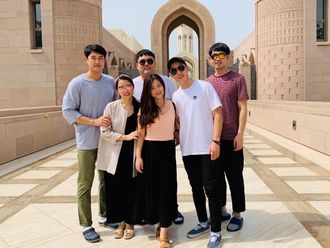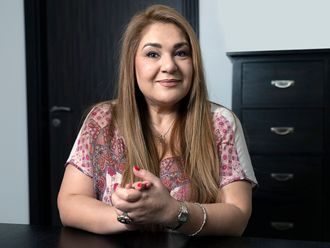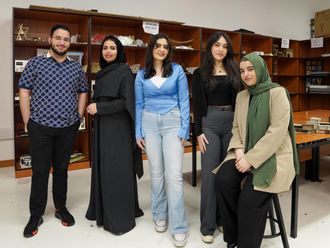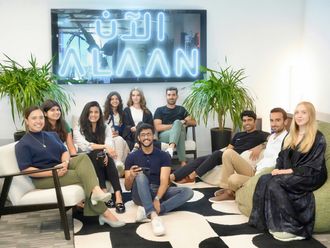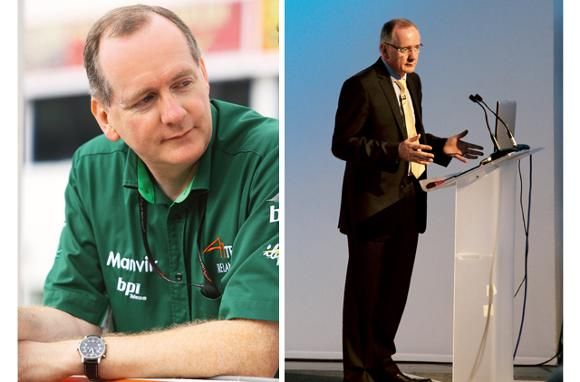
Mark Gallagher has a lot of drive. A senior executive with Formula One, he’s also an accomplished author, co-owner of a racing team, a regular commentator on Sky Sports and ESPN Star Sports and a motivational speaker who uses racing metaphors to help companies become successful.
Everything this 50-year-old does is related to the high-speed, adrenalin-fuelled world of cars, and it’s evident that he lives and breathes motorsport. “I am passionate about this sport,” he admits. And it’s easy to see why – he has worked closely with drivers such as Jenson Button, David Coulthard, Michael Schumacher and the legendary Ayrton Senna. “I’ve learnt a lot of lessons from them,’’ he says.
“To compete at the highest level, you need to have an efficient team, be clear and focused on delivery, have strong leadership skills and be able to take split-second decisions. “One of the most important attributes of leadership is the ability to empower staff and give team members the opportunity to thrive, develop, innovate and ultimately develop leadership skills of their own,” he says.
The team culture that pervades F1 teams is a vital ingredient to winning at work. These teams employ several hundreds of staff and work with dozens of key technical partners, all geared towards crossing the finishing line first at 20 Grand Prix races across the globe. The relentless quest for improvement never ceases, and Mark often reiterates this point in his talks about improving businesses.
Mark, who will be in Abu Dhabi early next month to speak about how to succeed in the corporate world, is also preparing to publish his second book Formula One: The Business of Winning, which draws on the lessons to be learned from the world of F1. He sees Formula One moving out of Europe and into new markets in the Middle East and Asia soon. “The UAE could be the base for a team,” he says. “All it takes is vision and investment.” Here, he tells Friday about his career, his time off and his hopes for the future.
Work
My career has been dedicated to working in F1. After being in the media [as an automotive journalist] for eight years, I wanted to get inside the sport and understand the business of it. So I joined the F1 management team in 1991 and it has been a great experience. Today I split my time between public speaking, commentating on ESPN Star Sports in Asia, helping with the management of Status Grand Prix – the racing team based at Silverstone in the UK which I founded in 2005 – and writing my second book about the sport.
As a child, I was a fan of motor racing, and after graduating from university I joined a leading F1 magazine. I then went on to head the marketing division of the race-winning Jordan team, before joining Jaguar Racing, and helping in its transition into the now-dominant Red Bull Racing team. From 2009 until 2011 I was with Cosworth [a global technology business that delivers solutions for the aerospace, defence, automotive and sport markets].
I am not a tough boss. My style is more open and collaborative. However, I like to set targets and give staff the power to get on with their job; in my view that’s the best way to manage. I’m often asked if I consider my job as work, due to my love of motorsport. It is work, but, of course, it can be fun too.
Formula One is a professional sport, but it’s also a business. What makes F1 even more business-like than other professional sport, is that in order to race, each team has to design, manufacture and develop a product – an F1 car. Each one is unique to its team, and it requires hundreds of full-time staff and suppliers to make this possible. An F1 team is essentially an engineering company that happens to produce an F1 car, and we sell that product by marketing it to our ‘customers’ – the sponsors – who use the sport for global marketing.
When I was running the commercial side of the Jordan F1 team in the 1990s I was always speaking at conferences on behalf of our sponsors. Eventually I was invited to talk to external businesses about the sport. I really enjoyed it, and for the past 15 years I have been a professional speaker.
Play
I was born and grew up in Belfast, Northern Ireland, and I studied economics at Queens University. My father used to attend major sports car races in Ireland in the 1950s, so racing runs in my blood. I admired two racing drivers – Jackie Stewart and Niki Lauda, both of whom won the Formula One World Championship three times.
Jackie was a master. He not only achieved enormous success, but also began to lobby for the safety culture, which has thankfully transformed the sport. Niki was very inspirational; he was almost killed in a fiery accident at the German Grand Prix in 1976, but returned to the cockpit a few weeks later, in spite of suffering life-changing burns.
He won the Championship for a second time in 1977 and then, after retiring from Formula One for two and a half years, returned to the sport in 1982 and won his third title. In the meantime he also founded and ran a successful airline; so he was inspirational as a driver, a man and an entrepreneur.
I am a keen cyclist, I ski every winter and I have a boat where I like to spend my summer holidays. Some people are surprised to hear that I have never been a racing driver, but I’m not talented enough! Driving is not very relaxing in the UK these days, so my idea of fun with cars is to watch the best drivers in the world racing them in F1.
Dream
I don’t have dreams, I just have projects that I want to achieve, particularly in helping more people enjoy the sport, which has been my life. Even as a child, I didn’t really have a dream, only the goal of being successful and working with something technical; either aircraft or cars. In the end, cars won that battle. One of the projects that comes close to a dream is the book I have been writing for the past 18 months, Formula One: The Business of Winning. It incorporates lessons from every aspect of the sport.
While writing the book I came to realise how much F1 can teach people. A good example is how we approach ‘risk’ or ‘safety’ in F1. Between 1950 and 1994, 47 drivers were killed in the races, but thanks to our new safety technology and processes, we have not suffered another Formula One driver fatality in the past 18 years. Eliminating fatal accidents in a high-risk business is a good example of an area where F1 can teach other businesses. I am often asked to speak at oil and gas industry conferences as a result of these developments.
As for dreams for my family, I especially want my children Mark, 17, and Laura, 15, to travel, because that is the best education in the world. I also wish that they are as fortunate as me in being able to turn their passion into their work. When I look ahead, I think the next big development in the motorsport industry will be the creation of the first team outside of Europe.
The main reason to be based in Europe used to be that the majority of races were held there, but that has changed; in 2013 only seven of the 20 races will be in Europe, so the UAE could become an excellent base for a team.





